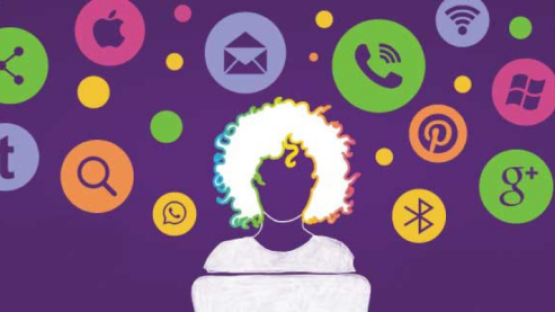Reclaiming the right to privacy: an opportunity to challenge gender inequality

Image source: Oxfam
This piece was co-authored with Ruhiya Seward, Senior Program Officer at IDRC and originally appeared here.
What if in trying to make development more equitable we’re creating risks that disproportionately impact people based on their gender?
Development programming aims to be both sustainable and equitable in part by recognizing the implications of inequality in its many forms, whether by gender, ethnicity, socioeconomic status, or geolocation. The adoption of the Sustainable Development Goals (SDGs) is one such effort. Tracking progress on these goals, however, requires an information revolution — the data revolution — in order to understand and monitor the full socioeconomic, political, health, environmental, and educational landscape. This is largely because when the Millennium Development Goals wrapped up in 2015, aid organizations realized that there simply was not enough information to show genuine progress.
Since then, digital technologies have been embraced as key tools to support this informational transformation. “Data for good” is now promoted and driven by a wide variety of global actors, from the United Nations to the World Economic Forum. Development actors everywhere speak of the importance of “counting” and “making the invisible visible”.
Yet in aspiring to these goals, we need to critically understand the shortcomings that may undermine our goals by perpetuating existing challenges. For instance, data are often presented as gender-neutral, but the way they are used in combination with technological innovation are certainly not. Data, if misused or misinterpreted, can reinforce and even heighten existing inequalities and biases. As a key means of supporting the SDGs, we need to ask ourselves about the relevance of the data that is being collected in order to understand the risks and the measures we can take to address the challenges. We also need to be critical of some of the innovations that are being touted as solutions.
For privacy and human rights, it is particularly important to bring a gender lens to the collection and use of data. This is necessary to understand the implications in light of socially constructed gender roles and socioeconomic and political structures that hinder people’s abilities to challenge existing dynamics.
For example, an identity scheme aimed at facilitating access and delivery of government services may seem benign, but when deployed within an oppressive framework and without the necessary safeguards, it can turn into a tool for control and surveillance. This can lead to the exclusion of certain people and groups who are profiled and targeted, such as those seeking sexual and reproductive healthcare.
Data mining, profiling, and other categorization techniques that increasingly constitute the core business of industries across many service sectors mean that one’s gender becomes an identifier. This identifier can be one that you self-identify with, or it could be one that is presumed based on your online history, your interests, or who you interact with across services. Or it could be that your gender is simply not recognized, which is the challenge faced by trans and gender diverse people globally.
Why does this matter? It matters because this gender identifier can be used to discriminate or exclude, and it can be abused, used, and sold as a commodity. In fact, the pervasive use of information and communication technologies makes it increasingly simple for governments and the private sector to collect and store data on individuals. Without sound data protection and privacy laws, the misuse of information puts people at risk from a wide range of potential abuses — not only for gender profiling, but also for ethnic profiling, identity theft, and the targeting and silencing of activists. Such abuses can have devastating consequences.
Together with Privacy International, IDRC has been supporting research and policy capacity on online privacy across the Global South for over a decade. These efforts are to help ensure that privacy is considered and prioritized in legal, technological, and policy frameworks. Through the privacy and development research network, civil society organizations, researchers, and legal organizations have produced high quality research on privacy and have enabled engagement in policymaking related to privacy online at the national, regional, and international levels.
In a recent report exploring the intersection of gender and privacy From oppression to liberation: Reclaiming the right to privacy, Privacy International offers a critical analysis of how particular interpretations of the right to privacy have been (mis)used to further reinforce gender roles and sustain patriarchal systems of governance in both the public and private spheres.
Going forward, if we advocate for human rights and privacy, we must reject interpretations of rights that reinforce rigid determinants of gender identity. Human rights are a necessary condition for human development, and meaningful democratic societies must allow citizens a secure space to develop their own identities and free thought.
The struggle against both government and corporate surveillance and the reification of unyielding gender identity is a fight against power imbalances. So how can development organizations carry out their work in a privacy-friendly manner that does not reinforce existing gender inequality? This question presents an opportunity to further the discussion with stakeholders who share similar visions of change, and to present another interpretation of privacy — one that protects, not undermines; which empowers, not oppresses; and which allows individuals to define themselves, and not have definitions imposed from the outside.
It is also an opportunity for those conducting research across disciplines to share their expertise and knowledge. The right to privacy cannot be defended by a uniform group of people. If we want the right to privacy to become a right for all and not the privilege of a selected group, we need individuals of all genders and from diverse backgrounds to become actors of change.
Reclaiming privacy as a fundamental right for women, trans, and gender diverse people can protect against patriarchy and systems of oppression, and we need to be ready to take on this challenge in supporting gender equality. We hope others will join us.



